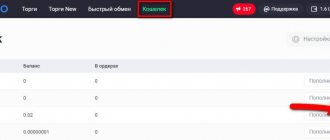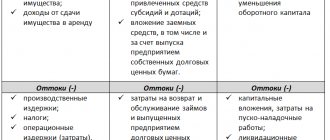Deceived Wirecard shareholders go to court
Photo by Michaela Handrek-Rehle/Bloomberg via Getty Images
The “scandal of the century” surrounding the collapse of the payment system operator Wirecard is gaining momentum not only in Germany, but also in the United States. The financial concern, which is included in the leading stock exchange index DAX 30 of the most valuable companies in Germany, left shareholders with nothing in a matter of days. Wirecard was a favorite of the exchange for many years, but it turned out to be built on deception (see “NG” dated 06/29/20).
The German blue chip, whose value on the stock exchange exceeded 22 billion euros, has turned into a dummy. However, as the state agency Deutsche Welle reports, reports of balance sheet manipulation and other fraudulent transactions that led to Wirecard's bankruptcy did not come as a complete surprise. The financial concern was accompanied by scandals throughout its existence. The first major one erupted back in 2008, when a group of shareholders accused management of dishonesty. This led to a sharp drop in Wirecard's share price. And although the company was unable to refute the accusations, management managed to get away with it.
It should be noted that journalists from quite reputable business publications began to notice inexplicable paradoxes in Wirecard’s financial performance. Thus, in 2020, Manager-Magazin could not find an explanation for the 250 million euros on the group’s balance sheet, and Wirecard only nervously replied that “the market has long known this situation.”
Some critics managed to intimidate for years with threats of lawsuits, while doubters were cajoled with enviable growth rates and unprecedentedly high profitability for the industry. Others were reassured by the fact that the concern, headquartered near Munich, successfully passed the audit of Ernst & Young (E&Y), the world's auditors. Most stock analysts advised buying Wirecard shares, and quotes quickly recovered after each blow. When another Wirecard fraud became public in 2020, the payment system, which by that time served clients such as KLM, Qatar Airways, Aldi and Lidl, simply ignored the accusations: they say they were not trustworthy.
As the German magazine Capital reports, the financial concern's case is now moving from the pages of newspapers to the courts. According to the publication, the New York-based Rosen Law Firm, which specializes in such cases, acted as a representative of a number of investors and, on their instructions, filed a class action lawsuit against Wirecard, six of its leading managers and E&Y in the court of the American state of Pennsylvania. In August, the San Francisco law firm Hagens Berman intends to bring a joint lawsuit against the German company by a number of American investors. The main allegation in both lawsuits is violation of American law, which led to significant financial losses for shareholders. This violation results in Wirecard providing inaccurate quarterly financial reports between 2020 and 2020. And the company that checked them, E&Y, was negligent in its duties and did not reveal the existing violations in a timely manner.
Unreliable data reflected in Wirecard's financial statements contributed to the fact that the value of its shares continuously increased. In essence, they were an artificially inflated bubble. When this was revealed and the shares fell sharply, investors lost large sums. The magazine indicates that other shareholders may join the claims. This has already happened in Germany, where the law firm Tilp from Tübingen filed a lawsuit back in May with the Munich Regional Court on behalf of defrauded investors. According to the magazine, more than 30 thousand shareholders are already involved in claims against Wirecard and E&Y.
Media: the key figure in the Wirecard scandal is hiding in Russia
BERLIN, July 19. /TASS/. The German newspaper Handelsblatt claims that Jan Marsalek, a former member of the board of directors of the German company Wirecard at the center of the market fraud scandal, who is considered a key figure in the fraudulent scheme, is hiding in Russia. The publication reported this on Sunday, citing its own sources in the judiciary, business and diplomatic circles.
According to the newspaper, Marsalek is now in one of the private houses near Moscow, allegedly under the supervision of Russian special services. Handelsblatt claims that before his flight to Russia, the former top manager transferred “significant amounts of money in the form of bitcoins” to the Russian Federation from Dubai.
The publication also writes that on June 18, Marsalek took a charter flight from Klagenfurt via Tallinn to Minsk. From there he allegedly moved to Russia. Moreover, Handelsblatt indicates that Marsalek has often visited Russia in recent years and used six foreign passports during his trips. The newspaper does not provide any concrete evidence for its claims.
On Saturday, Der Spiegel magazine, citing a journalistic investigation carried out by the publication together with the Bellingcat group, reported that Marsalek was allegedly hiding from justice in Belarus or Russia. According to the magazine, the 40-year-old former top manager arrived in Minsk on the night of June 19. The publication reported that Marsalek’s name can allegedly be found in the Russian register of arrivals and departures, which also covers Belarus. Der Spiegel also claimed that the former member of the board of directors of Wirecard had often visited the Russian Federation since 2010 and that the Russian FSB was interested in him. According to the magazine, Marsalek allegedly could have collaborated with Russian intelligence services or even worked for them. The publication also did not provide any evidence.
The scandal surrounding the German electronic payment operator Wirecard broke out in mid-June. As a result of the audit, it turned out that the company’s accounts do not have €1.9 billion, which was previously indicated in the financial statements as an asset. After this, it became known that the head of Wirecard, Markus Braun, was resigning. The payment operator has still not officially explained the lack of funds. The prosecutor's office in Germany believes that this amount did not initially exist, and was indicated in the reporting in order to mislead investors. Braun, who lives in Vienna, is accused of trying to “present his company as financially sounder to investors and clients.” He was detained, but then released on bail of €5 million. Marsalek fled immediately after the scandal broke out.
The German opposition criticized the German government for lapses in financial supervision and creating a positive image of the company. The Left Party announced the need to create a committee in parliament to investigate the situation around Wirecard.
On the day of his dismissal, June 18, Marsalek flew on an Embraer 650 Legacy charter plane from Klagenfurt to Tallinn, and from there to Minsk. However, due to the political conflict between the Russian leadership and the Belarusian dictator Alexander Lukashenko, it would be quite risky for the GRU to leave Marsalek in a neighboring country. Therefore, he was transported to Russia.
During negotiations over the phone and on the Internet, Marsalek revealed himself as a secret agent. He likely collaborated with the GRU when he visited Palmyra in Syria, as well as during investments in Libya. It is noteworthy that the 40-year-old manager used as many as six passports for frequent trips to Russia.
“Over the past ten years, he has traveled there more than 60 times,” Bellingcat representatives say. — The history of his visits to Russia contains 597 pages. This is much more than any other foreigner whose cases we have seen in five years of investigations.”
Presumably, Marsalek also visited Chechnya, a republic in Russia, where civil war raged for many years and is known for numerous crimes and money laundering. In 2020, the FSB, which monitored all of the Austrian's travel, banned Marsalek from leaving Russia, according to Bellingcat.
Politics and control under fire
In June, Wirecard representatives admitted to fraud amounting to 1.9 billion euros. Just a few days later, the concern, part of the DAX exchange index in Frankfurt am Main, declared bankruptcy. The Wirecard case is already being dealt with even in the department of the Federal Chancellor of Germany. As our publication reported, Chancellor Angela Merkel on September 3, 2020, ahead of her trip to China, held a meeting about the Wirecard case with former Economics Minister Karl-Theodor zu Guttenberg.
On the same day, Guttenberg wrote to the head of the department of economic, financial and energy policy in the Chancellor's office, Lars-Hendrik Röller, about Wirecard's intentions to enter the Chinese market and asked for his “assistance” during the trip. Upon his return, Röller replied that this topic had been discussed during the visit and agreed to “assist.” This was later confirmed by a government spokesman.
The opposition criticized the federal government's handling of the Wirecard case. “If the government still wants to prevent the creation of an investigative committee, it should immediately clarify the situation fully and say exactly what it knew about the Wirecard affair and what it did about it,” said FDP Bundestag member Florian Toncar. .
According to the Left Party faction, it is necessary to create an investigation committee, and immediately. It is necessary, in particular, to find out whether Merkel personally lobbied for the interests of Wirecard during negotiations in China and whether the Chancellor’s office knew about the company’s unauthorized actions, left-wing financial expert Fabio De Masi is convinced: “So that we can look into all the necessary documents and question important witnesses, an investigation committee must be created.”
Hufeld demands new law
There is also criticism of the Ministry of Finance, which controls the Federal Financial Supervisory Authority (Bafin). The head of Bafin, Felix Hufeld, admitted that his department did not work effectively enough in the Wirecard scandal. However, he pointed out that Bafin's powers are limited. Bafin directly controls only Wirecard's subsidiary, Wirecard Bank, but not the entire Wirecard group.
With this in mind, Hufeld advocated for new laws to improve control over high-tech companies. In an interview with the newspaper Die Welt, Hufeld stressed that this is in line with the spirit of European rules in this area. However, now, he said, “there are too many gray areas, so it is necessary to provide supervisors with additional, tougher tools.”
When asked to model Bafin on the model of the American stock exchange control agency SEC, Hufeld responded calmly: “Of course, we can take into account the features of the SEC model. But there are also fraud scandals in the US. “In addition, the United States has a different legal system, and it is not so easy to transfer to Europe.”
InoSMI materials contain assessments exclusively of foreign media and do not reflect the position of the InoSMI editorial staff.
Wirecard scandal: what happened and who is to blame
One of the largest payment operators goes bankrupt in Germany
What's happened. The interim manager in the bankruptcy case of the German fintech service Wirecard, Michael Jaffe, announced the interest of investors in his assets. The company filed for bankruptcy after an auditor could not confirm the presence of 1.9 billion euros in its accounts - a quarter of Wirecard's balance sheet.
Read more. The creditors' committee was contacted by investors from around the world "interested in acquiring either the underlying business or individual business units," Yaffe explained after the committee meeting.
Wirecard's creditors are looking for buyers for its debt of 200 million euros, Bloomberg reports, citing interlocutors. Previously, several banks, having lent Wirecard $1.75 billion in the form of a line of credit, approached the funds with an offer to buy the debt at a deep discount. Another part of Wirecard's debt in the amount of 120 million euros was sold at auction for 17% of the nominal value.
The story with Wirecard has been developing for more than a year. In January 2020, the FT published an article about overstatement of revenue by Wirecard's Singapore unit. The company denied everything, but the media continued to publish articles about Wirecard's "creative approach to accounting."
In particular, journalists described one of the schemes used by Wirecard. The company worked with partners to process payments in countries where it was not authorized to conduct financial transactions. Wirecard's funds were in accounts with partner banks, but the company took them into account in its financial results.
At the end of 2020, Wirecard hired KPMG to carry out the audit. After six months of studying the materials, in April 2020, the auditor stated that he could not confirm all transactions for 2016-2018 due to a lack of documents. Then shares of the service, which was worth 17 billion euros at its peak, fell by 26%. And on June 18, Wirecard’s main auditor, EY, said that it could not find 1.9 billion euros in the company’s accounts. On that day, the company fell in price by 65% - to 2.4 billion euros.
The next day, Wirecard chief executive Markus Braun announced his resignation. On June 22, he was arrested but released on bail of 5 million euros.
Three days later, Wirecard filed for bankruptcy, and on June 26, the British regulator (Financial Conduct Authority, FCA) suspended the permission issued to the service’s subsidiary, Wirecard Card Solutions, to process payments and issue cards.
This led to the blocking of the accounts of Wirecard partners, including the financial service Anna Money, created in England by the founders of Tochka and Knopka Boris Dyakonov and Eduard Panteleev, as well as Payoneer cards, popular in the CIS. Three days later, the FCA lifted the blocks. Anna Money announced the unblocking of customer accounts. Restrictions have also been removed from Payoneer cards.
The Wirecard case raised questions about the effectiveness of the German regulator, BaFin. Its president, Felix Hufeld, will have to explain himself to members of the German parliament. At the very beginning of the Wirecard scandal, the regulator took his side, banning short sales of Wirecard shares for two months after the first FT publication. Last week, the regulator admitted its share of responsibility for what happened, but defended the correctness of the decision to ban sales.
Investors also made claims against EY, but the company claimed that it was misled by Wirecard management.
Why do I need to know this? The Wirecard scandal has once again exposed problems related to the transparency and reliability of banking audits. In Russia, there were also several large bankruptcies, during which the regulator discovered a discrepancy between the bank’s statements certified by auditors and the real state of affairs.
During times of financial crises, it is important for bankers to stay up to date with current news. Subscribe to our telegram channel Frank RG (https://t.me/frank_rg) to quickly receive data on the situation in banks and the economy. Don't miss it when it starts!
If you find an error, please select a piece of text and press Ctrl+Enter.
Wirecard customers are migrating to other payment providers
After the FCA suspended Wirecard's UK office, many of its customers were thinking about switching to other payment providers. In fact, some companies, such as Revolut and Curve, already use other providers.
Last month, the UK Financial Conduct Authority suspended Wirecard's UK subsidiary Wirecard Card Solutions (WCS) after its parent company filed for bankruptcy. WCS issues cards for many fintech and cryptocurrency startups, however, despite the imminent lifting of the blocking, the number of its clients will soon decrease significantly.
Read Bloomchain through your favorite social networks: Telegram, , FB
Cryptocurrency companies were among the first to encounter problems. WCS issues cards for startups such as Crypto.com, TenX and Cryptopay. Their prepaid cards stopped working in Europe and the UK.
After the blocking, Crypto.com CEO Chris Marsalek said that customer funds were safe and would be transferred back to their accounts within 48 hours. Marsalek explained that clients' money is in segregated accounts at another bank - this is one of the FCA requirements. Similar statements were received from other cryptocurrency companies whose card issuer is Wirecard.
Breaking news: Wirecard fights for survival, business returns to New York
Investing.com - New York, the city that never sleeps but forced to close due to the Covid pandemic, is reopening its doors for business. However, the news from the southern front is less encouraging: the virus continues to spread rapidly further across Latin America. The stock market is set to open moderately higher, with Apple (NASDAQ: NASDAQ:AAPL) holding its Worldwide Developers Conference in the shadow of a new antitrust investigation. Meanwhile, Germany's fallen fintech star Wirecard is struggling to survive. Here's what you need to know about the financial markets on Monday, June 22. 1. New York returns to work On Monday, another 300 thousand New Yorkers will return to work, and the city itself will enter the second stage of lifting quarantine restrictions after the battle with the Covid-19 pandemic. The new stage of lifting restrictions includes the opening of retail facilities: shops, hairdressers, offices, real estate agencies, car dealerships, rentals, leasing, management of commercial buildings and retail facilities, repairs and cleaning. The city's mayor, Bill de Blasio, has allowed restaurants to use sidewalks or side parking spaces for outdoor service because transmission of the virus outdoors is much lower than indoors. All establishments must still adhere to social distancing guidelines, with staff and customers required to wear a mask and practice social distancing. The first wave of the virus in New York hit the city harder than any other part of the country, accounting for about a quarter of the 120,000 U.S. deaths recorded during the pandemic. 2. The virus has receded in Beijing, but has gained momentum in Latin America and the southern United States. New York is not the only place where quarantine requirements are being relaxed today. British Prime Minister Boris Johnson is expected to announce new measures to restart economic activity. Separately, the Chinese capital Beijing reported only seven new coronavirus cases on Sunday, suggesting that last week's tough response to the outbreak was having positive results. However, the virus has not disappeared. Brazil passed 50,000 deaths this weekend and Mexico, which began reopening last week, posted its second-highest daily increase in new cases. The number of people infected with the virus also continues to rise across the US Sun Belt (southern states), with more than 4,000 new cases reported on Sunday in California, Florida and Texas. At his first appearance of the re-election campaign last Friday, US President Donald Trump said he had ordered his aides to slow down the pace of Covid-19 testing. His aides subsequently called this comment “frivolous.” 3. Stock market to open higher US stocks will open higher, with the market dominated by fears of a second wave of the virus, which sent major indexes lower on Friday. At 15:30 GMT, the Dow Jones 30 futures contract was up 0.68%, while the S&P 500 futures contract was up 78% and the Nasdaq 100 futures contract was up 87%. Later, Apple's annual Worldwide Developers Conference will take place, where the company is expected to confirm its decision to release its own chips for the next generation of Mac computers. However, this meeting may be overshadowed by a simmering dispute with App Store application developers over the terms of access to it. The European Union last week launched an antitrust investigation into possible abuses of the company's market dominance. However, this did not stop its shares from reaching new all-time highs. 4. Wirecard fights for survival One of Europe's brightest tech companies, payment processor Wirecard, is fighting for survival on Monday after revelations of accounting fraud over the weekend. German payments company Wirecard said about $2.1 billion it said it held in trust accounts in the Philippines probably never existed. Over the weekend, the head of the Philippines' central bank said the funds never entered the country's payment system. The company published its financial statements for last year and warned that it may have to do the same for previous years. She is still trying to convince lenders not to terminate a nearly $2 billion line of credit because doing otherwise would lead to bankruptcy. 5. Oil prices consolidated as rig counts hit new low U.S. crude oil prices consolidated just below $40 a barrel, taking a break from last week's rally amid ongoing concerns that a second wave of coronavirus could hamper a recovery in oil demand. oil. At 06:30 ET (1030 GMT), WTI crude futures were down 0.3% at $39.73 a barrel, while Brent was down 0.1% at $42.13 a barrel. . On Friday, oil services company Baker Hughes said the number of active U.S. oil drilling rigs fell to its lowest level in 11 years, further confirming that U.S. oil production cuts are coming in the near future. There were further signs of continued oil supply glut on Monday as India, one of the world's largest oil importers, said it had completed a strategic stockpile replenishment. Written by Geoffrey Smith
Payoneer has blocked cards issued by Wirecard Card Solutions.
As it became known from an article by the German Deutsche Welle, Wirecard is filing for bankruptcy due to “the threat of insolvency and the presence of excess debt.” The corresponding decision was made on Thursday, June 25, by the board of Wirecard AG. Auditor Ernst & Young missed 1.9 billion euros on Wirecard’s balance sheet. The head of the company, Marcus Brown, resigned and was soon detained by law enforcement authorities on suspicion of financial fraud.
As a result of this event, many Payoneer.com customers began to experience problems using prepaid MasterCard cards issued by Wirecard Card Solutions, which is a UK subsidiary of Wirecard AG. There are problems when paying for purchases in stores and withdrawing money from ATMs.
You can see the company that issued your card on the back. In most cases, clients from Europe will have just such cards.
According to the latest data from the Financial Times, the British regulator Financial Conduct Authority (FCA) has frozen the activities of this company until the investigation is completed. The FCA says this is all done to protect customers' money. At the moment, Payoneer clients do not have access to funds in card accounts, because... The activities of the card issuing company have been frozen. Not only Payoneer clients, but also all other companies do not have access to funds.
Only the cards and, accordingly, the money on the cards are blocked. Money in accounts is available for withdrawal to bank accounts.
Payoneer in its blog tries to reassure all customers and states: “Your funds are safely stored in secure accounts and there is no reason for you to worry.” The article also focuses on the fact that Wirecard Card Solutions and Wirecard AG are two independent companies operating under the same brand.
“Wirecard Card Solutions Limited is a fully independent legal entity with its own board, its own regulatory and capital requirements and is subject to UK regulatory oversight and accounting standards.
Even in the unlikely event that Wirecard Card Solutions Limited goes bankrupt, the funds held on your card remain safe as they are held in trust in secure accounts with regulated credit institutions in the UK and European Economic Area.”
This blocking did not affect citizens of the Russian Federation, because our cards were blocked a month ago on May 27, 2020.
Payoneer.com customers can continue to receive funds into their accounts and withdraw them to the bank.
All the best. Your MrVector











